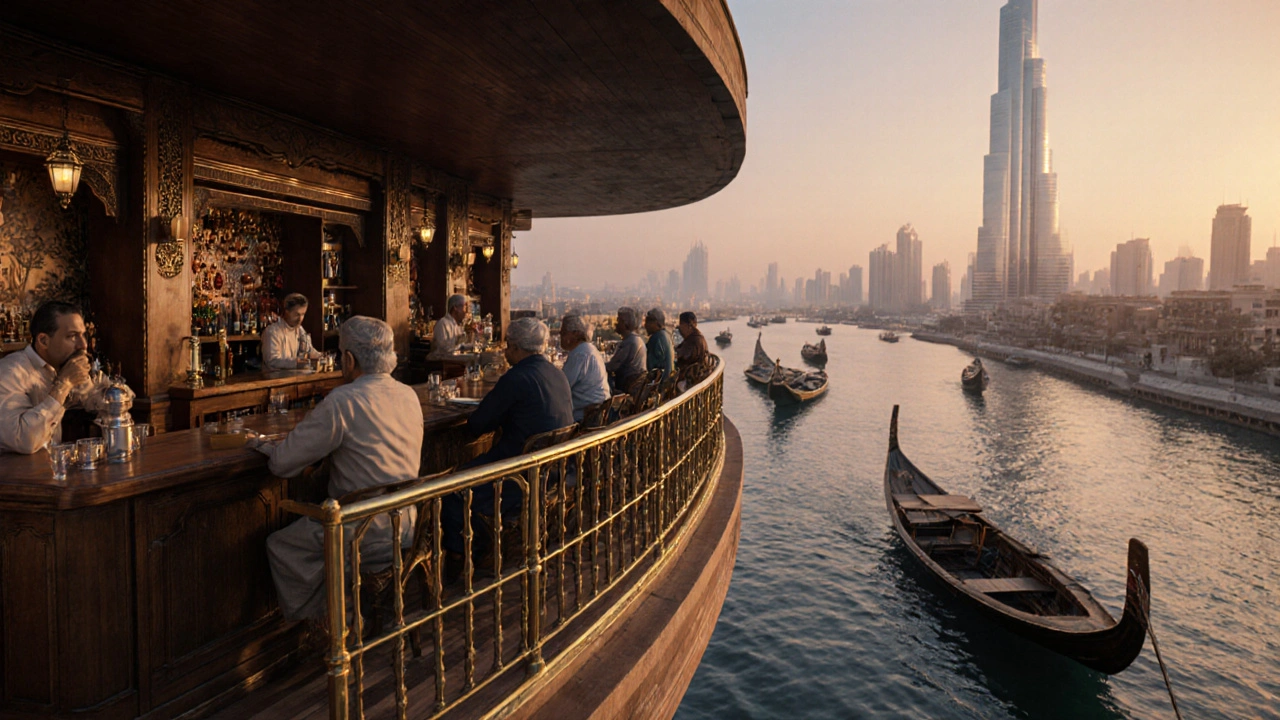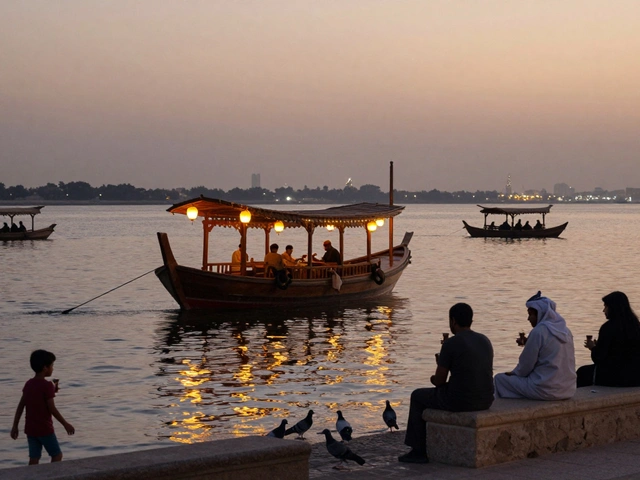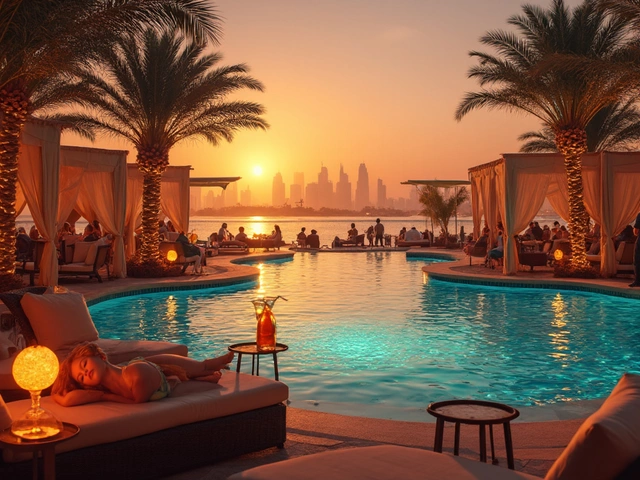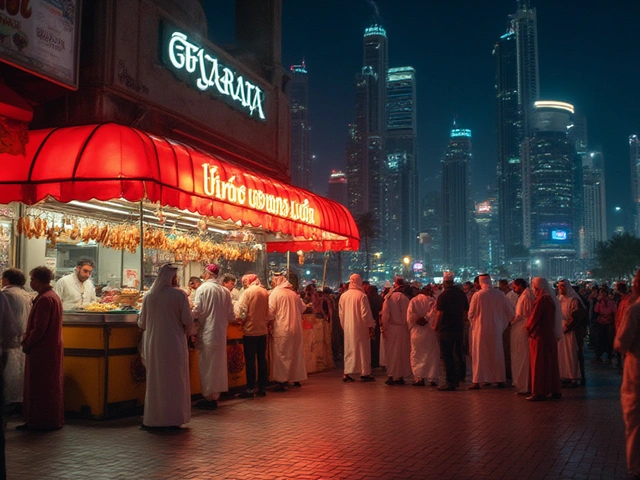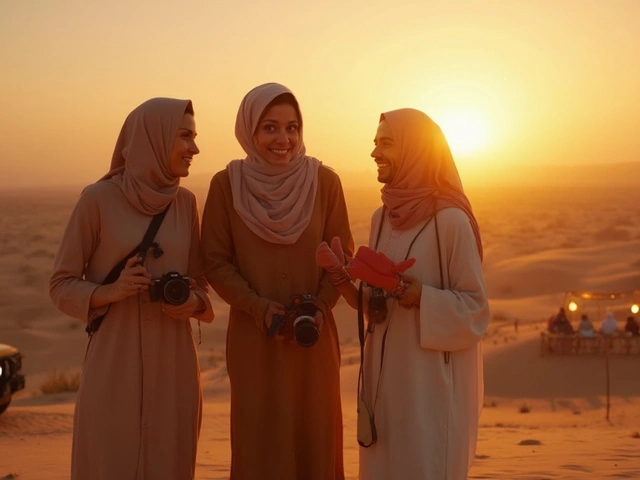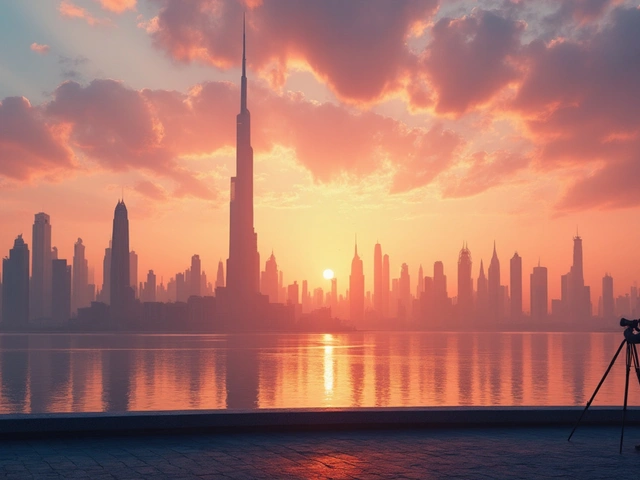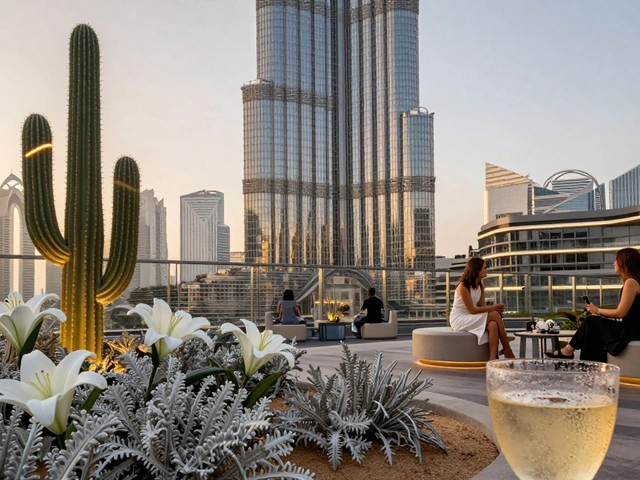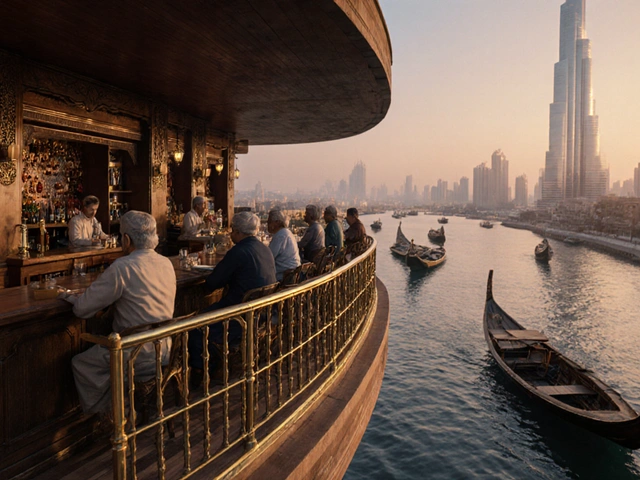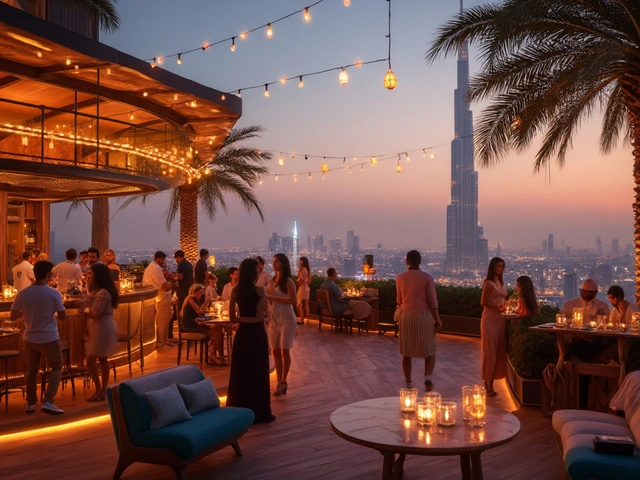In Dubai, where the skyline changes faster than the tide, a quiet truth hides in plain sight: some of the city’s most unforgettable nights aren’t found in the newest glass towers, but in the rooftop bars that have watched Dubai grow from desert outpost to global hub. These aren’t just places to drink - they’re living archives of the city’s transformation, where the clink of glasses echoes off walls that once held whispers of pearl traders, oil pioneers, and expats who dared to build something bold.
The Roof That Saw Dubai’s First Skyscraper Rise
Head to the top of the Al Fardan Building in Deira - yes, the one with the faded blue façade near the Dubai Creek - and you’re standing where the city’s first real rooftop bar opened in 1978. Back then, it wasn’t called a lounge or a hotspot. It was simply ‘The View.’ Locals called it the place where you went after Friday prayers to sip Arak with friends, watch the dhows glide past, and talk about how the city might one day have elevators that went higher than five floors. Today, it’s still there, though now it’s called Al Raya Sky Lounge. The original wooden bar counter? Still there. The same brass railings where fishermen leaned after selling their catch? Still there. The view? Even better. You can now see the Burj Khalifa from here - a sight that would’ve made the original patrons laugh.
Where the Oil Barons Dined Before the Mall Was Built
Just a ten-minute drive from the Dubai Mall, tucked above the old Al Wasl Road, lies Al Maha Terrace. Opened in 1985 by a Kuwaiti oil family who wanted a quiet escape from the growing chaos of Jumeirah, it was the first rooftop bar in Dubai to serve shisha with mint tea instead of cocktails. The owner, Hassan Al-Saud, insisted on hand-woven Emirati rugs and no music louder than a camel bell. He banned loud laughter after 10 p.m. - a rule still followed today. You won’t find neon signs or DJs here. Instead, you’ll find Emirati elders playing backgammon under lanterns, young expats reading poetry in Arabic, and the occasional Emirati bride-to-be coming here for a pre-wedding quiet night with her closest friends. The menu hasn’t changed in 30 years: cardamom coffee, date syrup cocktails, and grilled lamb skewers served on brass trays. It’s not trendy. But in a city obsessed with what’s new, that’s why it matters.
The Rooftop That Survived the Crash - and Became a Legend
In 2008, when Dubai’s property market collapsed and half the city’s new bars shut down overnight, one rooftop refused to close. That was 707 Sky Bar on the 70th floor of the Emirates Towers. At the time, it was the most expensive bar in the city. But during the crisis, its owner, a British expat named David Merton, did something unexpected: he dropped prices by 70%, opened the doors to taxi drivers, nurses, and schoolteachers, and started hosting free jazz nights on Tuesdays. Locals called it ‘The People’s Roof.’ For months, the bar was packed with people who couldn’t afford a bottle of champagne but could afford a glass of wine and a conversation. That spirit stuck. Today, 707 still has the same wooden tables, the same view of the Dubai Creek, and the same tradition: every Tuesday, a local poet reads original work in Arabic and English. The bar doesn’t have a social media team. But it has 12,000 loyal regulars who still show up - not for the view, but for the story.
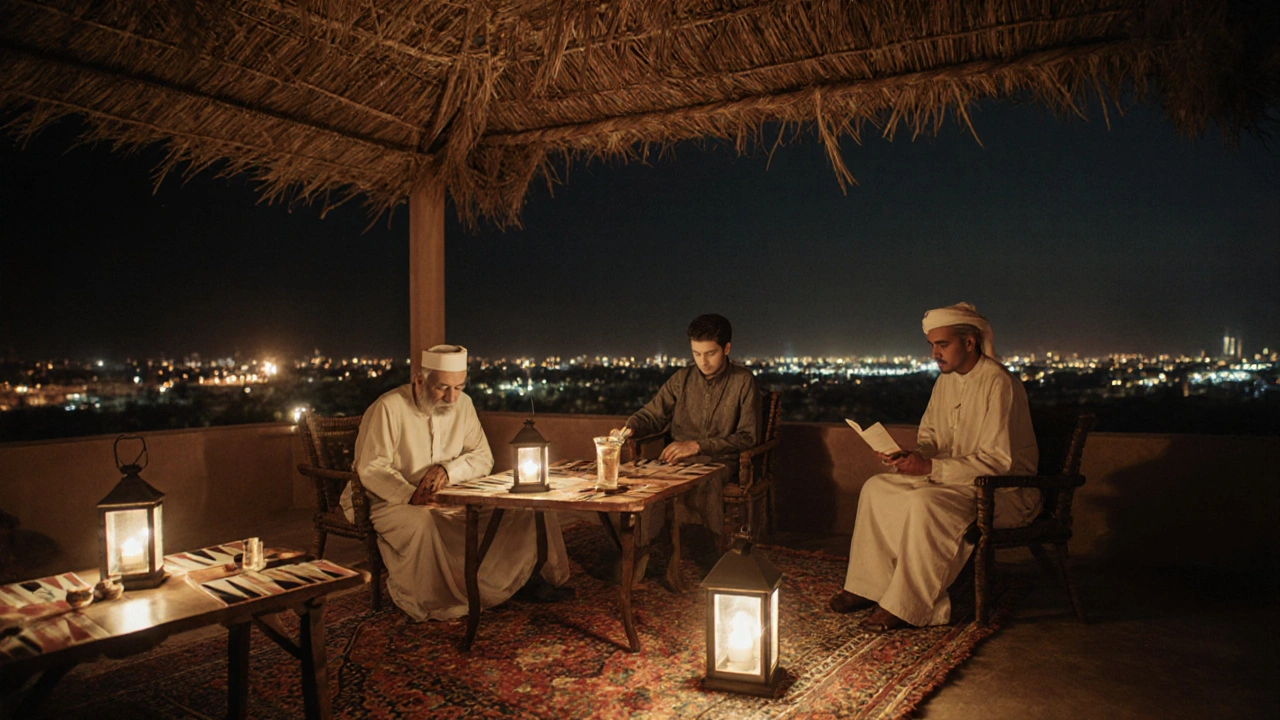
The Rooftop That Changed How Dubai Thinks About Culture
On the edge of Alserkal Avenue, above a converted warehouse that used to store spices for the old souk, sits Al Rijal Heights. Opened in 2019 by a group of Emirati artists and architects, it was the first rooftop bar in Dubai designed entirely around Emirati heritage - not as a theme, but as a lived experience. The ceiling is made from woven palm fronds, like traditional majlis roofs. The music is oud and daf, not EDM. The drinks are made with local ingredients: hibiscus from Fujairah, saffron from Al Ain, and rosewater distilled in Sharjah. There’s no dress code. But you’ll notice most people wear modest clothes - not because they’re told to, but because it feels right here. The bar doesn’t serve alcohol on Fridays. Instead, it offers a tea ceremony with dates and cardamom, led by a local elder. It’s not the loudest bar in town. But it’s the one that taught Dubai that history doesn’t have to be behind glass. It can be served on a rooftop, with a view of the desert.
Why These Bars Still Matter in a City That Forgets
Dubai doesn’t hold onto things. Buildings get torn down. Brands disappear. Even the best restaurants close after two years. But these rooftop bars? They’re still here. Not because they’re the fanciest. Not because they have the best cocktails. But because they remember. They remember when the only skyline was the horizon. When the only lights came from lanterns on dhows. When a drink was a reason to sit, listen, and talk - not just to post.
There’s a quiet rebellion in choosing one of these places over the latest rooftop with a floating pool and a celebrity DJ. It’s not about being old-fashioned. It’s about choosing depth over dazzle. It’s about knowing that the best views in Dubai aren’t always the tallest ones - they’re the ones that show you how far you’ve come, and who helped you get here.
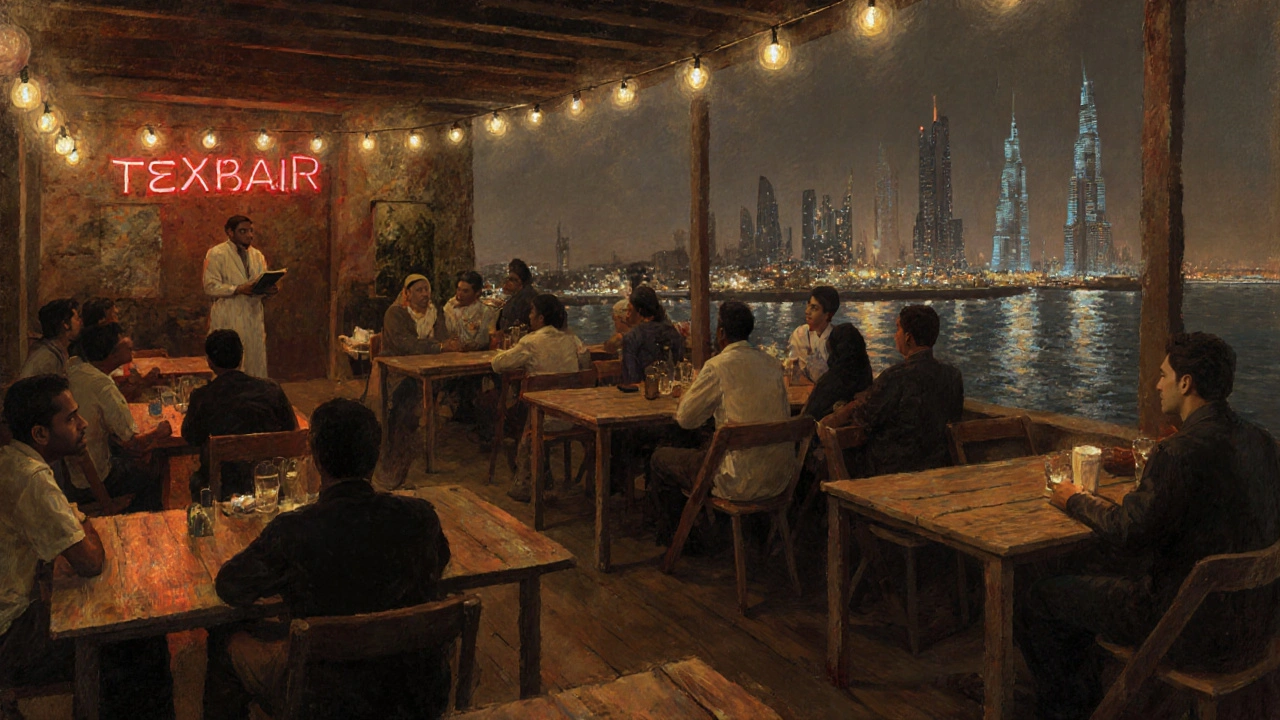
How to Find Them - And What to Expect
These spots don’t advertise. You won’t find them on Instagram ads or hotel concierge lists. Here’s how to find them:
- Ask a local taxi driver: ‘Where’s the oldest rooftop bar you know?’ Most will smile and say, ‘You mean the one with the wooden counter?’
- Visit on a weekday - weekends are for tourists. Weekdays are for stories.
- Don’t expect cocktails named after Dubai landmarks. Expect drinks named after grandfathers.
- Bring cash. Many still don’t take cards.
- Be quiet. These places don’t need noise to feel alive.
If you’re looking for a night that doesn’t end with a selfie - but with a memory - these are your places.
What You Won’t Find Here
You won’t find bottle service with a $500 minimum. You won’t find neon signs flashing ‘#DubaiVibes.’ You won’t find people dancing on tables. And you won’t find a menu that changes every month. What you will find? Real people. Real stories. And a view that’s been watching Dubai become what it is - for decades.
Are these historic rooftop bars in Dubai open to tourists?
Yes, absolutely. These bars welcome tourists, but they’re not designed for them. Locals and long-term residents are the core audience. Tourists who visit with respect - by dressing modestly, speaking quietly, and listening more than they post - often leave with the most meaningful experiences. Don’t expect VIP treatment. Do expect to be treated like a guest, not a customer.
Do I need a reservation for these historic rooftop bars?
Not usually. Most of these places operate on a first-come, first-served basis. But if you’re going to Al Maha Terrace or Al Rijal Heights on a Friday evening, it’s smart to arrive before 7 p.m. They fill up with locals celebrating the weekend. Weekdays are quieter and more intimate.
Can I bring my own alcohol to these rooftop bars?
No. Dubai has strict laws about bringing alcohol into licensed venues. Even if a bar seems low-key, they’re all licensed by the Dubai government. Trying to bring your own will get you turned away - and possibly reported. Stick to what’s on the menu. The drinks are made with local ingredients and are worth trying.
Are these rooftop bars family-friendly?
Some are, especially during the day. Al Rijal Heights offers afternoon tea sessions with traditional Emirati sweets for families. Al Maha Terrace allows children until 9 p.m. But most of these places are designed for adults seeking quiet conversation. If you’re with young kids, check ahead. The vibe is more contemplative than playful.
Why don’t these bars have social media pages?
Many of these bars were built before Instagram existed. Their owners believe the experience should be lived, not shared. They don’t want crowds coming just for photos. They want people coming for connection. If you want to know when they’re open, ask someone who’s been there. That’s how it’s always been done here.
If you want to understand Dubai - not just see it - go to a rooftop where the past still sits at the table. You’ll leave with more than a drink. You’ll leave with a story.

